Tech
Sign up for our newsletter
We summarize the week's scientific breakthroughs every Thursday.
-
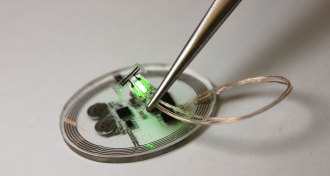 Health & Medicine
Health & MedicineA new implant uses light to control overactive bladders
Experiments in rats show that a new soft device could help alleviate frequent, sudden urges to urinate.
-
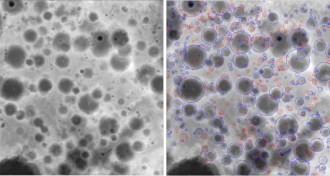 Artificial Intelligence
Artificial IntelligenceArtificial intelligence is mastering a wider variety of jobs than ever before
In 2018, AI bested humans at following fauna, diagnosing disease, mapping the moon and more.
-
 Astronomy
Astronomy50 years ago, astronauts orbited the moon for the first time
Apollo 8 launched on December 21, 1968, with three astronauts on board, making 10 revolutions around the moon — the first manned lunar orbits.
-
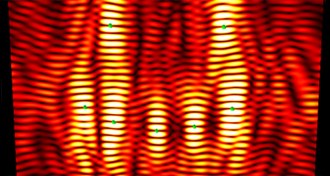 Physics
PhysicsThese sound waves can levitate and move particles in new ways
A new machine that levitates objects using sound waves can manipulate several particles at once.
-
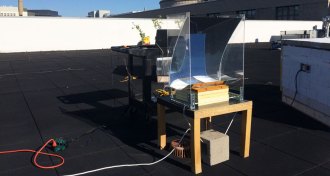 Tech
TechA new way to turn saltwater fresh can kill germs and avoid gunk buildup
A new device that harnesses sunlight to produce pure vapor from seawater could last longer and produce cleaner water than other technology.
-
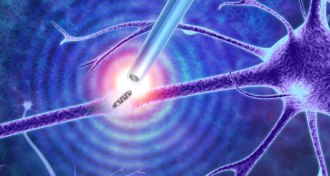 Life
LifeThese new tweezers let scientists do biopsies on living cells
Nanotweezers that can pluck molecules from cells without killing them could enable real-time analysis of the insides of healthy and diseased cells.
-
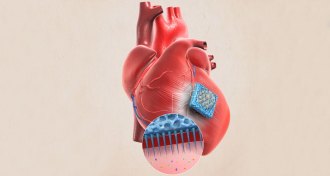 Health & Medicine
Health & MedicineA patch studded with tiny needles may help heart attack survivors recover
A bandage that sticks to the surface of the heart exudes proteins and other molecules that help muscle cells grow.
-
 Earth
EarthA new algorithm could help protect planes from damaging volcanic ash
A computer program that tracks the temperature and height of clouds in the atmosphere could keep planes away from volcanic ash.
-
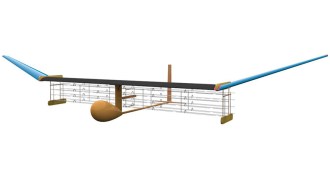 Tech
TechA new airplane uses charged molecules, not propellers or turbines, to fly
A small aircraft prototype is powered by ionic wind flowing in one direction and pushing the plane in the other.
-
 Tech
TechHow Twitter bots get people to spread fake news
Automated bot accounts on Twitter help spread misinformation by strategically encouraging people to make it go viral.
-
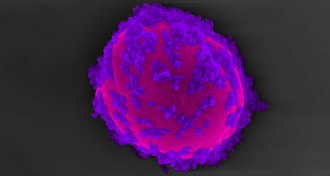 Microbes
MicrobesMini ‘solar panels’ help yeast shine at churning out drug ingredients
Microbes equipped with light-harvesting semiconductor particles generate useful chemicals much more efficiently than ordinary microbes.
-
 Environment
EnvironmentCar tires and brake pads produce harmful microplastics
Scientists surveyed tiny airborne plastics near German highways and found that bits of tires, brake pads and asphalt make up most of the particles.